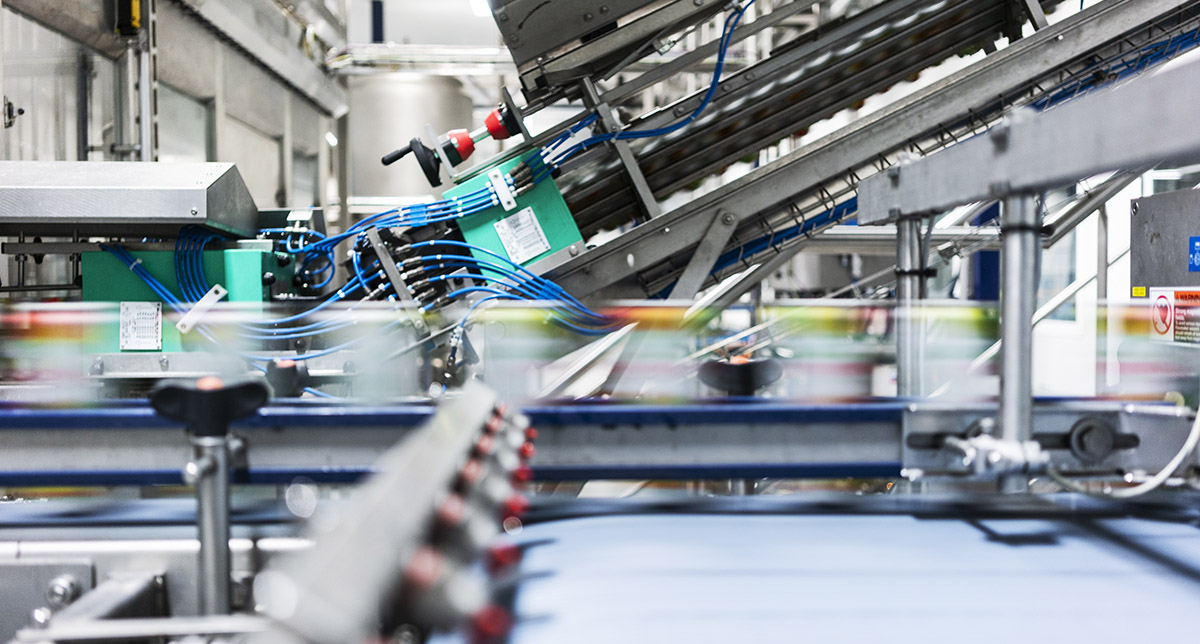The Failing Food System: Collaborative Innovations to Turn This Around
Food is not only essential to our survival but it is also big business. The food industry is the largest sector of the global economy, according to the World Bank, and is valued at roughly US$8 trillion, representing 10 percent of all economic output. The COVID-19 pandemic has brought to light the fragility of our world, no less than the plight of the food supply chain. As a result, safety nets need to be in place to ensure food safety and security. And with a renewed spotlight on how food consumption can impact global and personal health, people have started to look for healthier alternatives to their dietary habits. It’s believed that alternative food sources and technological innovations will be the disruptive solution to reform and build the vulnerable food systems.
Huge food supply chain inefficiencies characterise the existing system even before the 2020 pandemic. About one-third of all our food supplied for consumption is wasted which translates to over a billion tonnes per year, while intensive animal husbandry is one of the largest contributors to greenhouse gas emissions.
“We are going to reach a world population of about 10 billion by 2050 comprising people who on average are going to live longer,” says Natalie Lung, Programme Manager (Food Tech Accelerator) of Brinc. “Research has pointed out that the current food production will need to almost double to meet this demand. But we are already living in a world where so many people go hungry that the entire food production system can't be scaled to meet the growing demands of an increasing population. We believe that technology and innovation will be the only thing that will enable us to sustainably feed the population.”
Brinc is a venture capital and accelerator firm that empowers technological development to solve some of the world’s biggest challenges. They launched Asia's first food technology accelerator, and are now extending the platform to Mainland China. Last year they announced a commitment to invest in 1,000 climate-conscious startups in the next five years.
Julia Dalmadi, Director of Community Programme of Future Food Institute (FFI) explains that what cripples the system and makes it unattainable is the inequality of food distribution, which is the result of a systematic failure throughout the entire supply chain, from farming and agriculture, production and manufacturing, distribution and retail to consumption. Demonstrated in the fact that a large populace suffers from hunger while other parts of the world are battling obesity.
FFI is an Italy-based non-profit organisation that offers educational programmes through their Academy, and foster systemic change around the world with Living Lab partnerships that connect communities with local businesses to further innovations in food.
Another challenge is climate change, Julia says, with unpredictable weather conditions and land becoming less productive, farmers are in need of other solutions. This brings us to look at sustainable practices in a circular economy. “People should look into regenerative agriculture practices or agroforestry, to restore the health of soils and land, and make more profitable outcomes, which are ecosystems that the planet already has in place. We just use those structures and ecosystems and replicate them in our agriculture.”
The Food & Climate Shaper Boot Camps organized by the Food and Agricultural Organization of the United Nations (FAO) and the Future Food Institute (FFI) aims to equip the future workforce of the food system with the skills, competencies, and tools to design solutions that serve both human and planetary needs.

Consumers “Vote with Money”
Before the pandemic, concerns about food security were rife. This was shown in people willing to pay a premium for further awareness of sustainability; from knowing where their food is coming from and its quality to whether the supply is generated from a sustainable source going forward...

Traceability, Transparency, Trust
Individuals' concern with food safety has been heightened by COVID-19. More than half of the people surveyed in a recent study believe food safety is a top 3 global issue, according to new research from the Mars Global Food Safety Center (GFSC). Consumers are increasingly worried about exposure risk related to food handling, preparation and transportation...

Navigating the Valley of Death
Advancement in food technology can allow us to completely rethink how and where we can cultivate our food sources. One of the more revolutionary developments in this area is that of ‘cultured meat’. “If you think about being able to grow meat for consumption without slaughtering animals, it’s really something,” says Lung...
Synergy and Connectivity across Ecosystem
The interdependencies of the food system are extremely complex with many actors having the right to intervene at any stage. In order to continue to add value to the product and have that value returned on investment, it is important to pursue engagement with the whole community, and work toward the same goal. Government and legislative bodies are instrumental to taking actionable steps to move the industry forward, from subsidies and lowering market entry barriers for new technologies to revising food licensing for alternative protein foods such as the cell-based variant.
On the other hand, a greater emphasis needs to be placed upon transparency and traceability, which is why innovation in food technologies has to be prioritised. Technologies from artificial intelligence (AI), blockchain to alternative protein development will help bring efficiency to the food supply chain, while reducing wastage into animal husbandry, in order to achieve balanced distribution of food and optimise resources in our ecosystem. At the same time, big producers in the conventional food industry can look toward acquiring new technology and incorporate it for a more sustainable way of manufacturing and operations. New business models can be implemented through partnering or M&A transactions with startups who are responsible for bringing new technology to the market.
It is important to remember that the system needs to become more holistic where synergy and connectivity within the whole ecosystem is key.
联系我们

